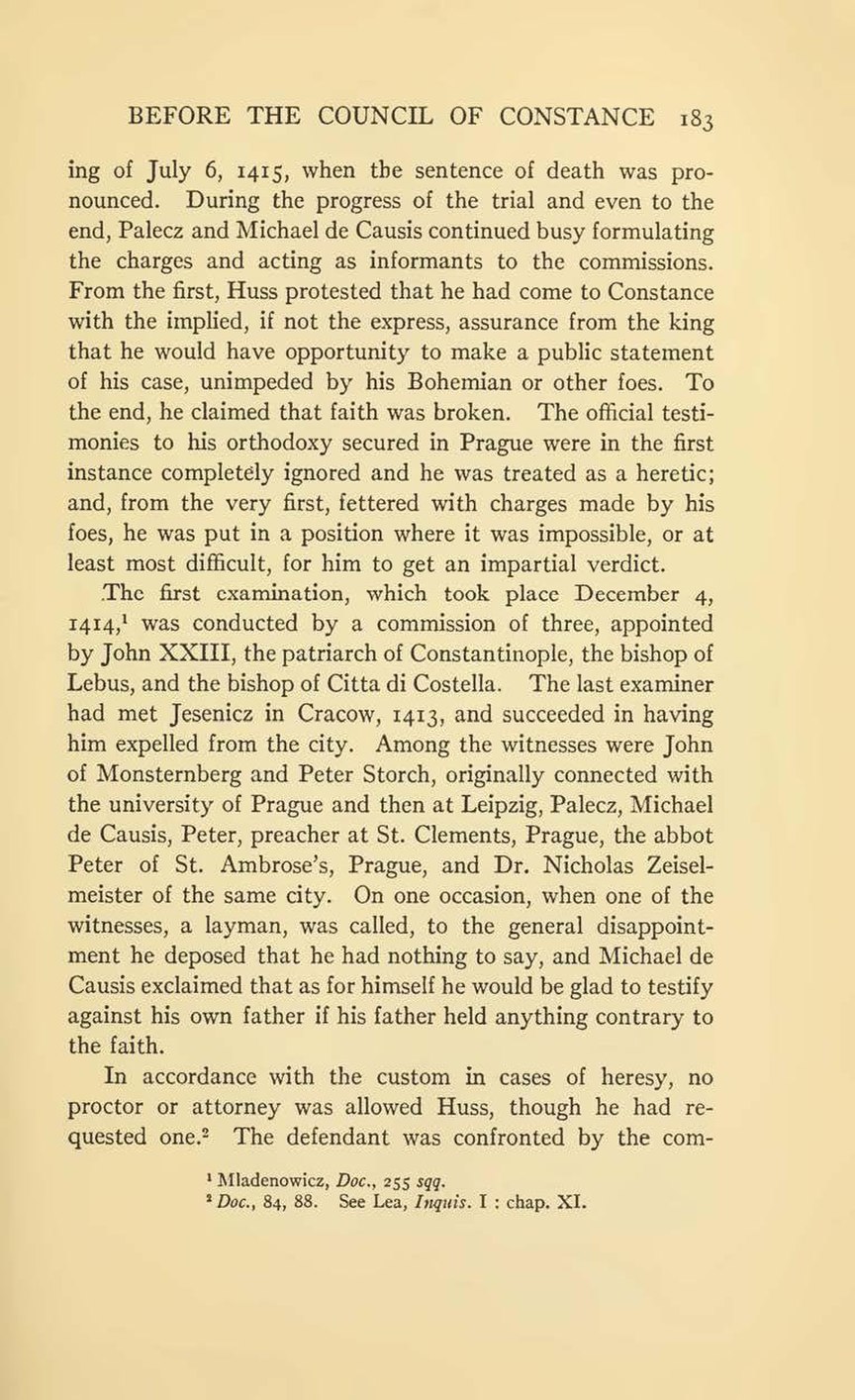ing of July 6, 1415, when the sentence of death was pronounced. During the progress of the trial and even to the end, Palecz and Michael de Causis continued busy formulating the charges and acting as informants to the commissions. From the first, Huss protested that he had come to Constance with the implied, if not the express, assurance from the king that he would have opportunity to make a public statement of his case, unimpeded by his Bohemian or other foes. To the end, he claimed that faith was broken. The official testimonies to his orthodoxy secured in Prague were in the first instance completely ignored and he was treated as a heretic; and, from the very first, fettered with charges made by his foes, he was put in a position where it was impossible, or at least most difficult, for him to get an impartial verdict.
The first examination, which took place December 4, 1414,[1] was conducted by a commission of three, appointed by John XXIII, the patriarch of Constantinople, the bishop of Lebus, and the bishop of Citta di Costella. The last examiner had met Jesenicz in Cracow, 1413, and succeeded in having him expelled from the city. Among the witnesses were John of Monsternberg and Peter Storch, originally connected with the university of Prague and then at Leipzig, Palecz, Michael de Causis, Peter, preacher at St. Clements, Prague, the abbot Peter of St. Ambrose’s, Prague, and Dr. Nicholas Zeiselmeister of the same city. On one occasion, when one of the witnesses, a layman, was called, to the general disappointment he deposed that he had nothing to say, and Michael de Causis exclaimed that as for himself he would be glad to testify against his own father if his father held anything contrary to the faith.
In accordance with the custom in cases of heresy, no proctor or attorney was allowed Huss, though he had requested one.[2] The defendant was confronted by the com-
